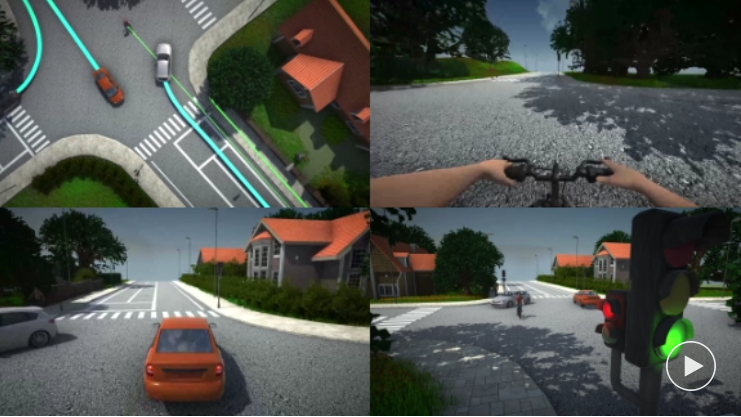Virtual development methods will be used to learn more about safe communication between road users in new SAFER project
SAFER’s recently concluded pre-study “Virtual reality interactions with autonomous vehicles”, has developed into an approved FFI project; Advanced Virtual Development Methods for evaluating Communication of Automated Vehicles and Vulnerable Road Users.
The initial SAFER pre-study project focused on using virtual reality to study interactions with connected and automated vehicles from the perspective of a vulnerable road user. The project was based in the newly established virtual reality hub on Traffic Safety at Lund University and aimed to explore how a VR environment can be used to study interactions between CAVs and VRUs.
In this follow-up project, the researchers will continue to investigate how external user interfaces can be used by connected self-driving vehicles to communicate their presence and intentions with unprotected road users. The goal is to secure reliable results from using virtual reality to efficiently represent multi-modal communication between automated vehicles and vulnerable road users.
The results of the project will support future rapid development of advanced communication systems both in terms of self-driving and manually driven vehicles.
The project includes three work packages:
• Work package 1 will provide an overview of existing solutions for communication with light and sound.
• Work package 2 will study how tests with virtual realities should be performed both in terms of technical solutions and layout.
• Work package 3 is a case study where conceptual user interfaces (based on WP1) are tested in a virtual reality (based on WP2).
The research team, which consists of researchers from Lund University and Volvo Group, expects to find some insight into the viability of using a virtual reality bicycle simulator in this context. Future projects might expand on such simulator's usefulness and how they fit into real- world development processes.
The project will end mid 2022 and will be hosted by SAFER’s research area for Road user behaviour.

